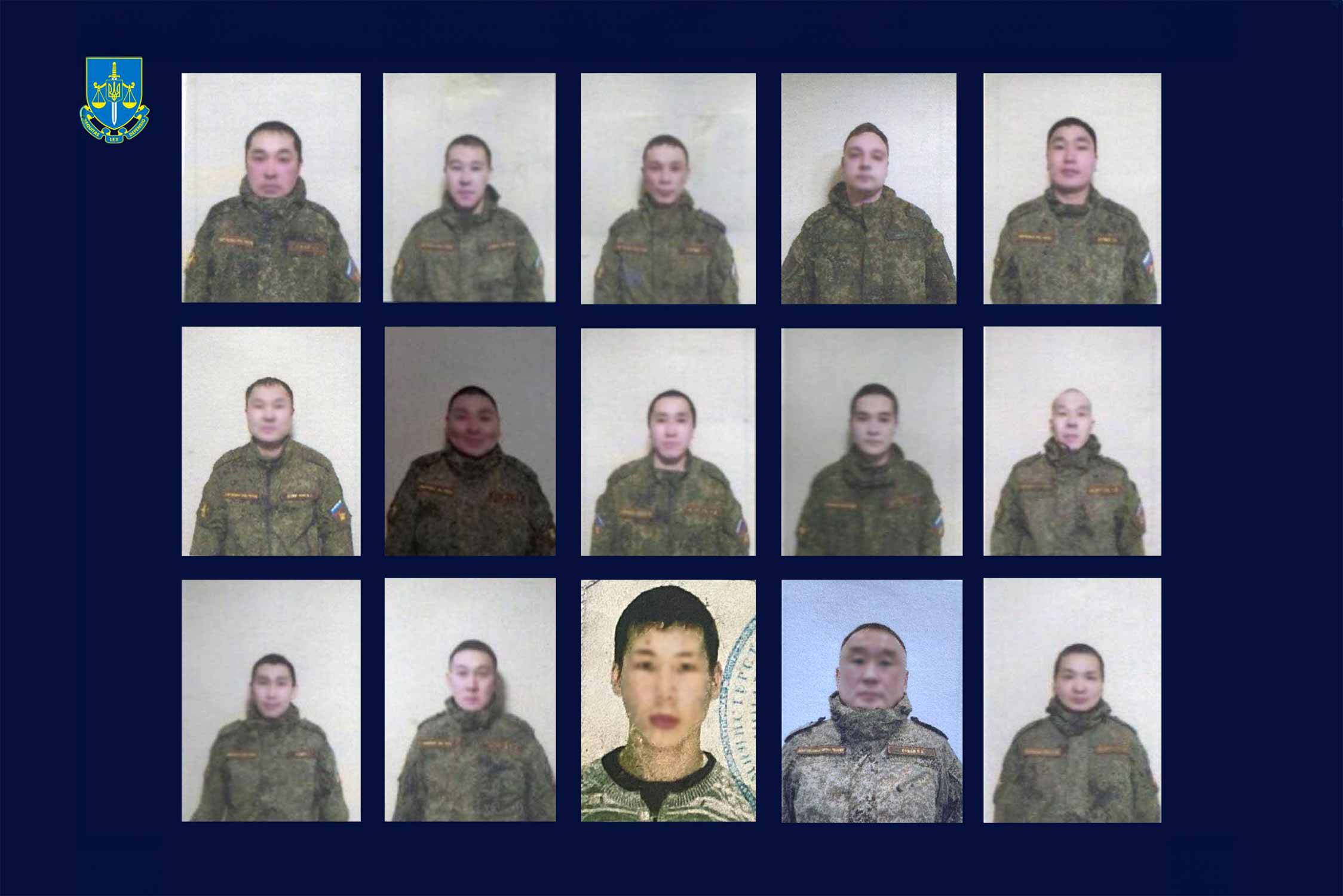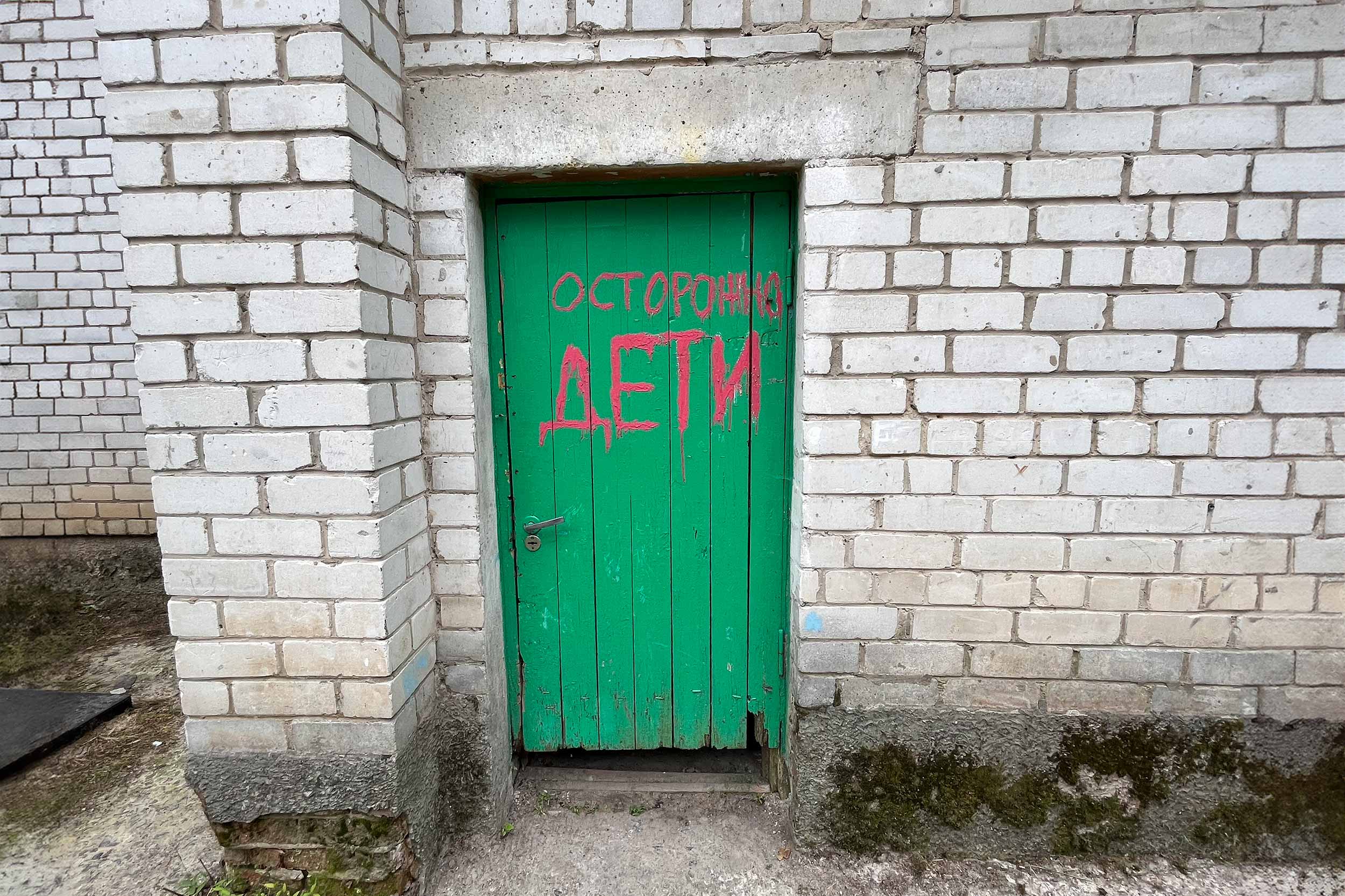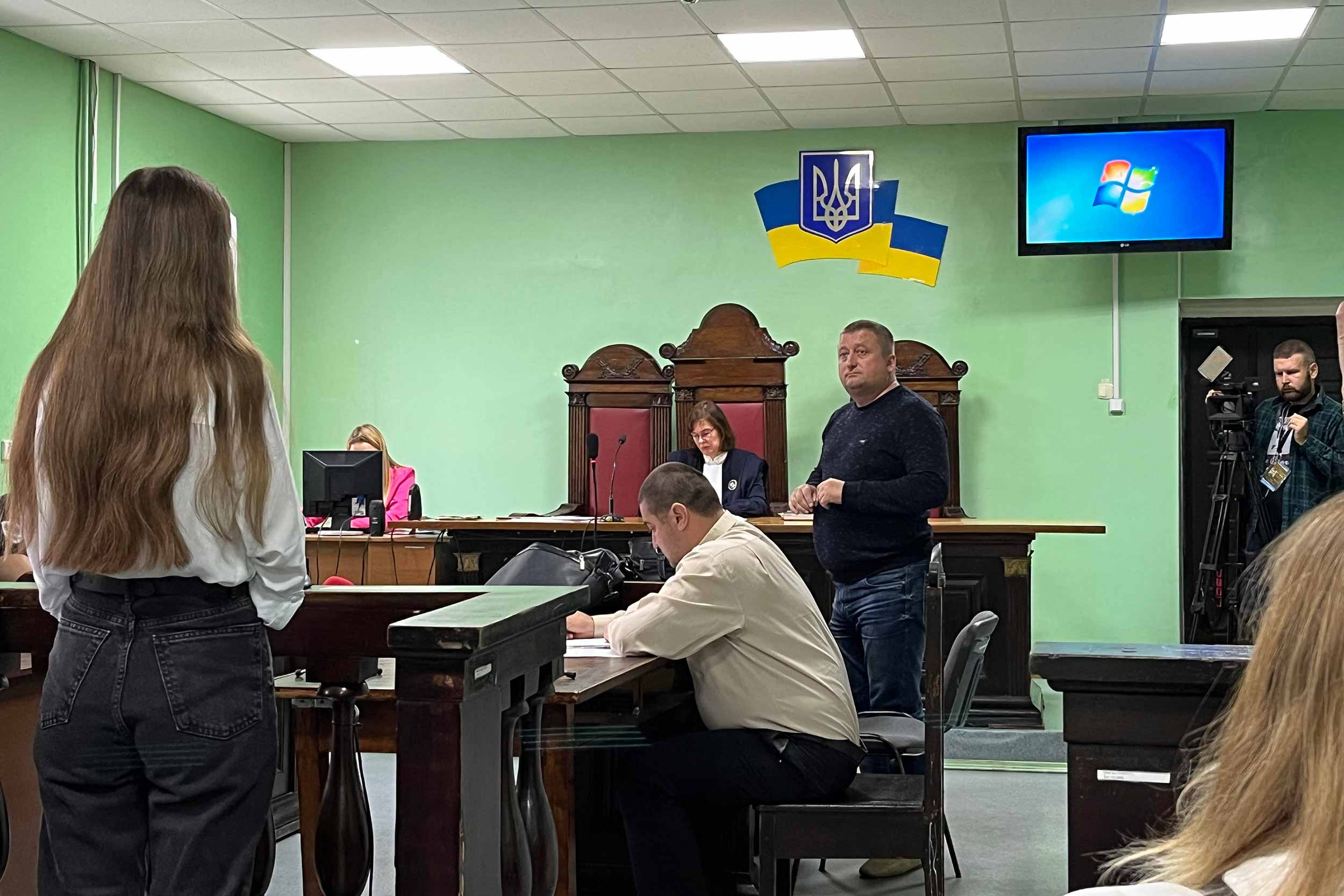Yahidne: Hearing Against 15 Russian Soldiers Ends
In March 2022, nearly 400 civilians were crammed into a cellar and used as human shields by occupation forces.
The Chernihiv District Court has held its final hearing in absentia against 15 Russian soldiers accused of holding 368 civilians hostage and using them as human shields during the occupation of Yahidne, a village near the north-eastern city of Chernihiv. Ten of the captives died during the ordeal.
On February 27, the court adjourned to deliberate, having heard testimony from 84 victims. The prosecutor asked for 12 years in prison in absentia, the most severe punishment allowed for violating the laws and customs of war under Part 1 of Article 438 of the criminal code. The two defence lawyers asked for the defendants to be acquitted for lack of sufficient evidence to prove their guilt. Judge Svitlana Maiboroda is expected to deliver the sentence in two weeks time, but no exact date has been announced.
The soldiers, all from the 55th motorised rifle brigade stationed in southern Siberia’s Republic of Tyva, are accused of the cruel treatment of the civilian population, committed by a group of persons in violation of the laws and customs of war. They are Amir Kendenov, Buyan Dorzhu, Arzhaan Saaya, Vitaly Mongush, Sayn Kenden, Dorzhu Demir-ool, Sholban Dambar-ool, Buyan Dadar-ool, Aleksey Borisov, Sayan Khomushku, Arian Khertek, Eres Oorzhak, Nazit Mongush, Aigarim Mongush and Siin-ool Suvan.

Prosecutor Serhii Krupko asked the court to include the suspicion in absentia against commander Semen Solovov whose orders the defendants apparently carried out. The court, however, stated that the suspicion did not apply as it was a separate case.
During the debate, Krupko stated that the Russian military violated the Geneva Convention on the Protection of Civilians, which prohibits the use of human shields.
“All the accused who put people in the basement, in unbearable living conditions, guarded the basement, preventing people from leaving, understood and could not help but understand that every person in that [situation] would experience both moral and physical suffering,” the prosecutor told the court.
According to witness testimony, the Russian soldiers often entered the basement drunk, holding machine guns and looking for girls and young women to abuse. Some threatened to shoot the civilians right in the basement.
When captives died, the soldiers did not allow the bodies to be removed for several days. Living conditions were atrocious, with little food or water and people forced to cram together and sleep sitting up.
“You can see how people are sitting on top of each other,” Krupko told the court, referring to photos that a victim, Olga Menyailo, took with her mobile phone on March 30, 2022, the last day of her stay in the basement.
He also read out part of the diary that 52-year-old Menyailo kept while in the basement.
“Today, March 13, one old man died and all the people sighed with relief, because there was more room in the basement for one person when he was taken out,” read Krupko. “Can you imagine? Ten days of such an atrocity led people to this point, that they no longer react to the death of their fellow villager. This phrase is indicative of the horrors that people experienced in the basement.”
Alongside the photo evidence provided by some victims, the court examined Russian military documents found in Yahidne, which contributed to identifying the accused. It also utilised inspection protocols of the yard and school basement, where trenches had been dug around the perimeter.
The investigation also provided the court with intelligence information about the units that occupied Yahidne. Krupko said that the victims recognised the perpetrators from the photos and indicated how many identified them: for example, 14 victims recognised San Siin-ool, 43; six recognised Borisov, 31, and four recognised Dadar-ool, 34.

CRIMINAL LIABILITY OVER HUMAN SHIELDS
The Center for Free Legal Aid appointed two lawyers: Ihor Savytskyi, who defended 32-year-old Aigarim, and Mykola Kashuba who took on the defence of the other 14. No explanation was provided for this division of labour.
Kashuba asked for the acquittal of the soldiers under his defence, stressing that Ukraine’s legislation did not foresee the crime of civilians as human shields.
“All the crimes formulated by the prosecutor focused on the fact that Yahidne residents were ‘human shields’, meaning hostages of the Russian army. But Ukraine’s criminal code, Art. 438, does not provide for criminal liability for the illegal holding of hostages, this is provided for by the Rome Statute,” the lawyer told the court. “There is such a rule of law, but I want to draw the attention of the court and everyone present in the hall that, to date, Ukraine has not ratified the Rome Statute.”
Kashuba added that, under international law, the commander bore criminal responsibility. However, Solovov, of the 228th Guards Regiment, could not be the commander of the 15 defendants because he served in another military unit.
The lawyer stated that the proceedings had failed to prove their direct involvement and claimed that there were errors and violations in the evidence. He also asked for the testimony of the victims in court to be evaluated rather than the protocols of the pre-trial investigation.
The other defence attorney, Savytskyi, indicated what he called inconsistencies between the identification protocols and the victims’ testimonies and asked the court to take a critical view of that evidence.

“In accordance with the Criminal Procedure Code, all doubts and contradictions should be interpreted in favour of the accused person. Therefore, I believe that the guilt of Aigarim Mongush has not been proven beyond a reasonable doubt,” Savytskyi told the court.
At the September 2023 hearing, victims said that they recognised the accused but did not know who they were.
In his reply, Krupko noted that the Rome Statute was not the only treaty prohibiting the use of human shields and cited the Geneva Convention. He also said that intelligence showed that the command post of the combined Russian military units was located on the territory of the school in Yahidne, and therefore the accused were subordinate to Solovov.
“The leadership from the 228th brigade was there and military logistics was provided by the 55115 military unit, its subordinate. The Russian Federation did not send one unit to Yahidne, it brought together different units: mortars, chemical weapons, infantry troops and put one chief in command of all this consolidated unit,” Krupko said.
Regarding the identification of the defendants, the prosecutor stressed the victims’ conditions.
“How can the defence expect victims to name their offenders' surnames, first names and patronymics after two years? Was the serviceman supposed to introduce himself to them in an army style before pointing the machine gun? Or how was it supposed to happen?” he asked.
Kashuba in turn emphasised the importance of procedure.
“I will explain to the prosecutor that it is possible to mention those persons in a court session within two years, by filing a petition. The court presents the protocol to [the victims], they look at it, whether they recognise or not [the soldiers], and [check] whether their signature [the victims’] is under the protocol,” concluded the attorney.
The trial was held in absentia and the defendants were not present in court.
